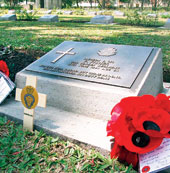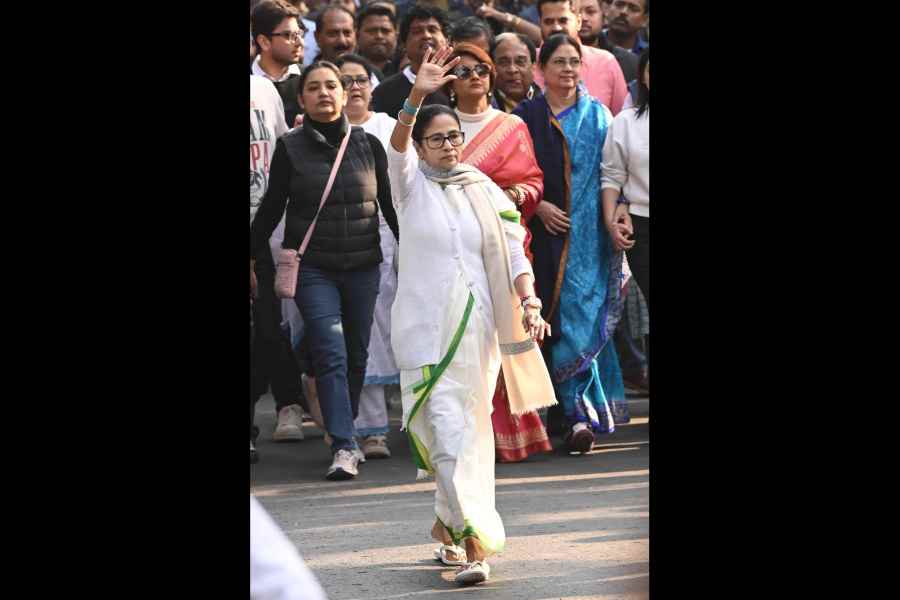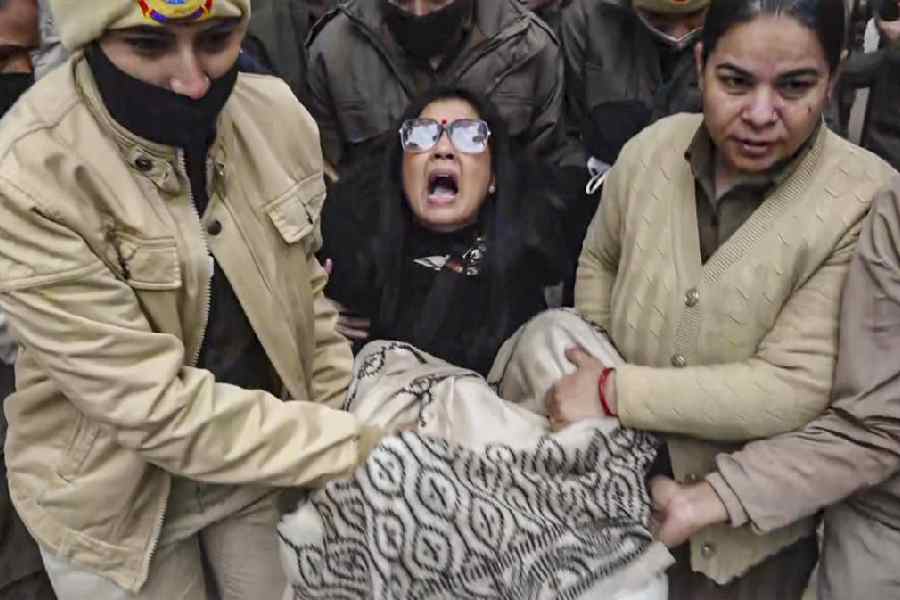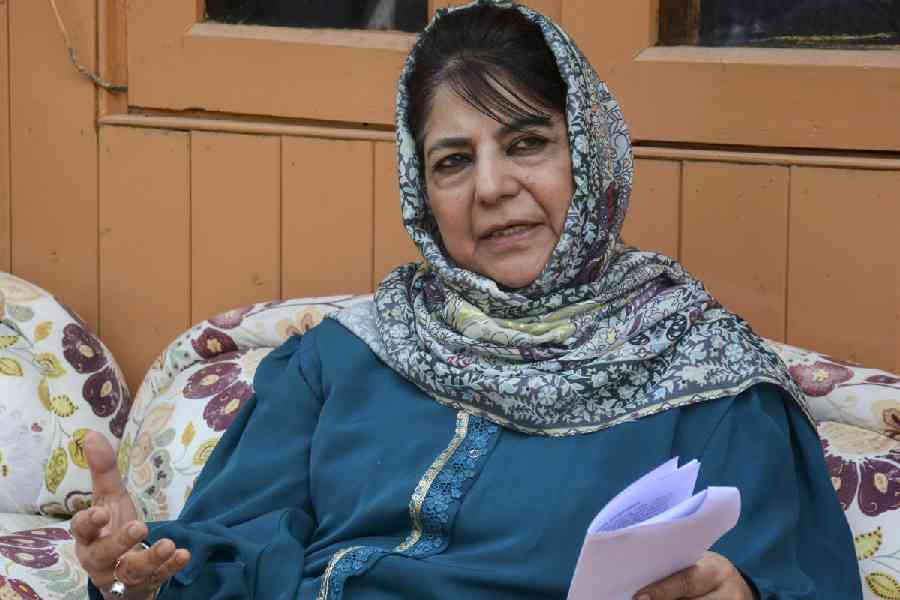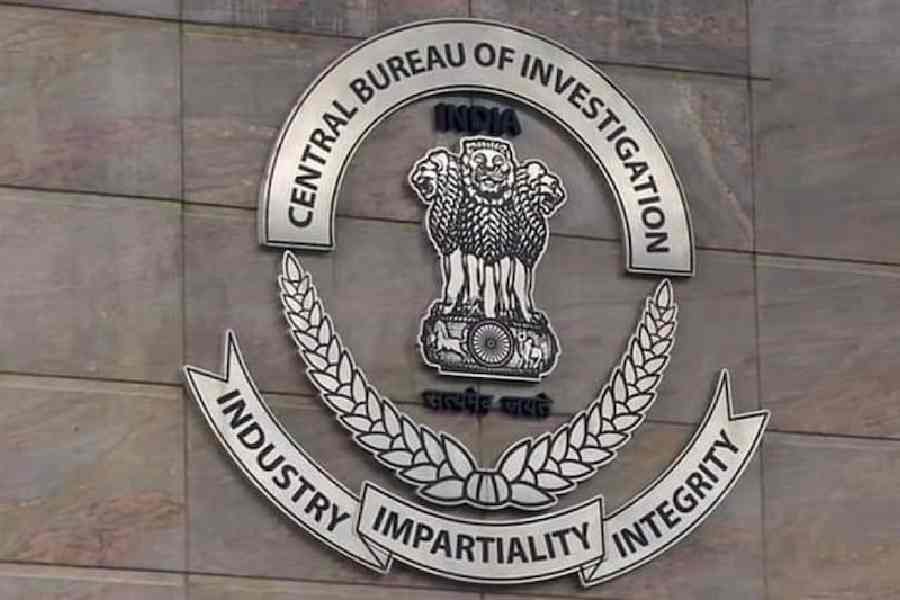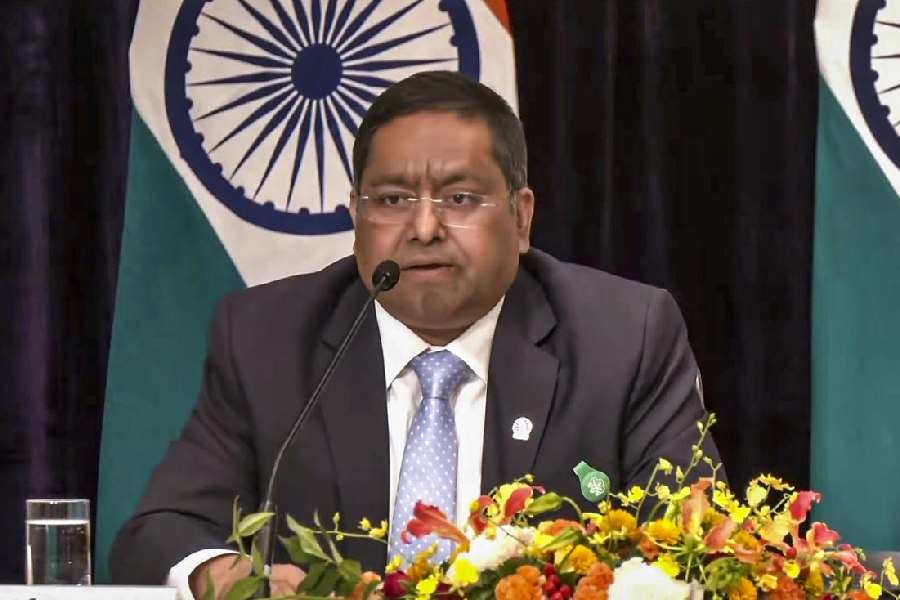 |
| The Imphal War Cemetery after a British delegation paid its tribute in April 2006 to the casualties of the Second World War. (Eastern Projections) |
London, April 21: The twin battles of Imphal and Kohima, when British troops defeated Netaji Subhas Chandra Bose’s Azad Hind Fauj and the Japanese army during World War II, have together been chosen as Britain’s greatest battle.
The 1944 Imphal-Kohima battle was picked over the more celebrated battles of D-Day and Waterloo in a contest organised by the National Army Museum.
“Great things were at stake in a war with the toughest enemy any British army has had to fight,” historian Robert Lyman said, making a case for the twin battles in a 40-minute debate at the museum.
If Lt Gen. William Slim’s army of British, Indian, Gurkha and African troops had lost, the consequences for the Allies would have been catastrophic, Lyman said. The Japanese and Netaji’s army lost 53,000 troops (dead and missing). The Allies took 12,500 casualties at Imphal and 4,000 at Kohima.
The successful British defence meant they were later able to push into Burma and beat the Japanese back from mainland Asia.
Lyman suggested that one reason the double battle is relatively un-feted is that Britain played it down because of US President Franklin D. Roosevelt’s opposition to the British empire.
“This was the last real battle of the British empire and the first battle of the new India,” he said. The Indian troops “weren’t fighting for the British or the Raj but for a newly emerging and independent India and against the totalitarianism of Japan”.
Lyman ranked it with Midway, El Alamein and Stalingrad as the turning-point battles of World War II.
Imphal-Kohima was on a shortlist of five battles that had topped a public poll. Waterloo had topped the online poll, which produced a list of 20 land battles fought since the English Civil War (1642-51). Finally, the top five were debated before an audience of more than 100 guests yesterday at the museum in Chelsea before it went to an audience vote.
Imphal-Kohima received almost half the votes, far ahead of D-Day (1944), which received 25 per cent, and Waterloo (1815), which got 22 per cent. Rorke’s Drift in the 1879 Zulu War and the Battle of Aliwal in the 1846 Anglo-Sikh war in Punjab brought up the rear.
“Imphal and Kohima... showed that the Japanese were not invincible.... The victories demonstrate this more than the US in the Pacific, where they were taking them on garrison by garrison,” Lyman said.
The Imphal battle lasted from March till July while the April-June fight for Kohima, though smaller in scale, was so intense that it has been described as the “Stalingrad of the East”. Some veterans of the battles and historians have felt the victories have since been overlooked partly because the invasion of Europe, starting with the June 6 D-Day, took place while they were still being fought.
The contest’s criteria included a battle’s political and historical impact, the challenges the troops faced, and the strategy and tactics used.
The winner was a surprise given the enduring prominence of Waterloo and D-Day in Britain. Indeed, the troops who fought in India and Burma in WWII called themselves “The Forgotten Army”.
The Japanese along with Netaji’s army had poured over the Burmese border to enter India. Fought over a vast area of jungles and mountains, it was marked by vicious hand-to-hand combat.
In one sector, only the width of the town’s tennis court separated the two sides. When the relief forces of the British 2nd Division arrived on April 18, the defensive perimeter had been reduced to a shell-shattered area only 350 metres square.
There are several memorials to the British and Indian troops who fought in the area, including the famous “Kohima Epitaph”. It reads: “When you go home, Tell them of us and say, For their tomorrow, We gave our today.”
Lyman’s adversary in the debate, former Parachute Regiment Colonel Stuart Tootal, argued for the D-Day landings and subsequent Battle for Normandy against Hitler’s Germany. Although popular culture, including movies such as Saving Private Ryan, has highlighted the US role and relegated the British to a supporting cast, the operation was under the command of Britain’s Field Marshal Bernard Montgomery.
The victory decided the outcome of World War II and denied the Russians total control of Berlin. It’s sheer scale and the risk involved made it Britain’s greatest battle, said Tootal, a veteran of Iraq and Afghanistan.
The Duke of Wellington’s victory over Napoleon’s army at Waterloo had gone into the final as favourite. Historian Iain Gale said its consequences were immense for Britain and it has “permeated our nation and its conscience”. Waterloo ended Napoleon’s attempts to dominate Europe. “It prepared the way for the British Empire and the modern world as we know it,” Gale said.

